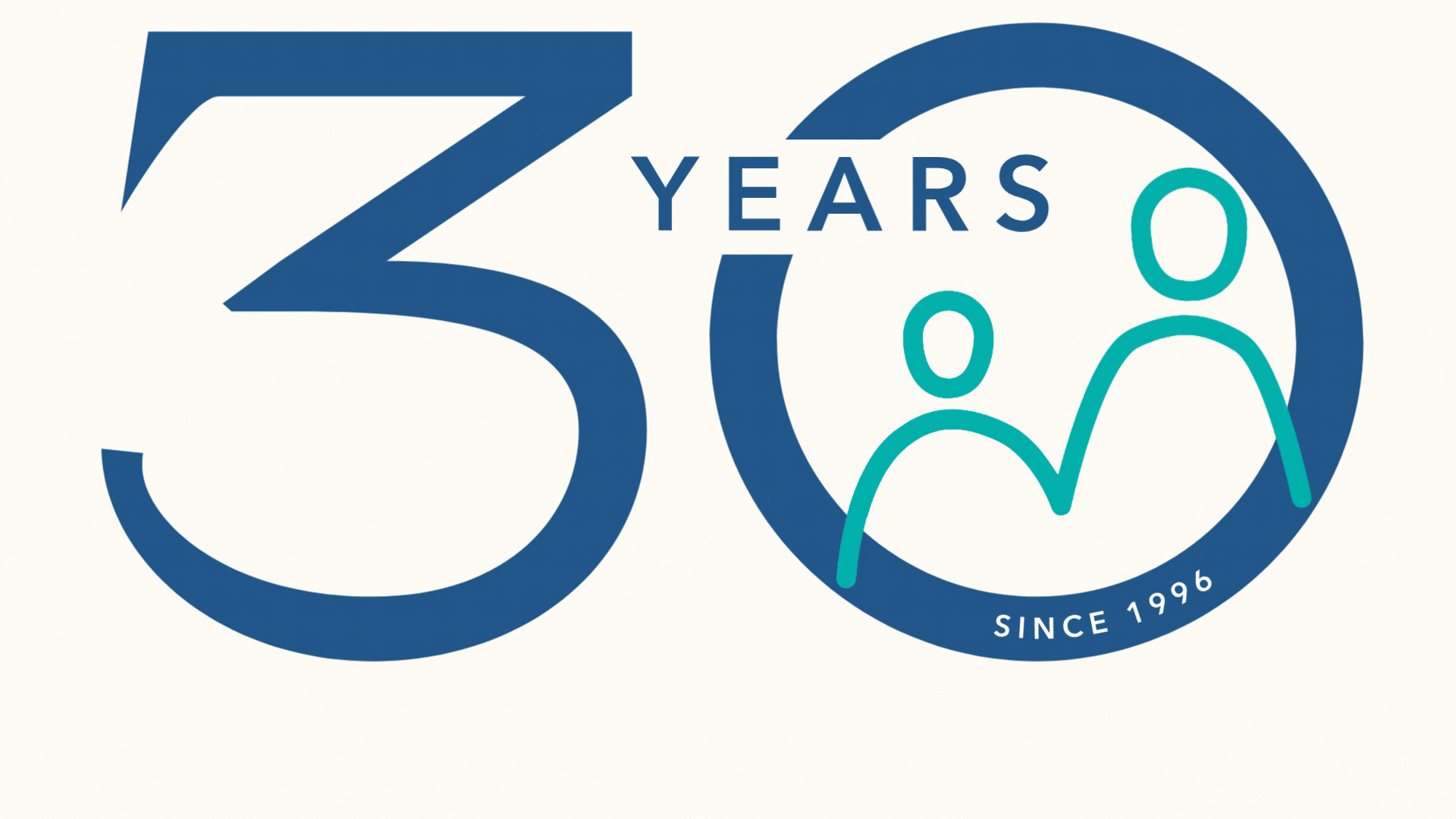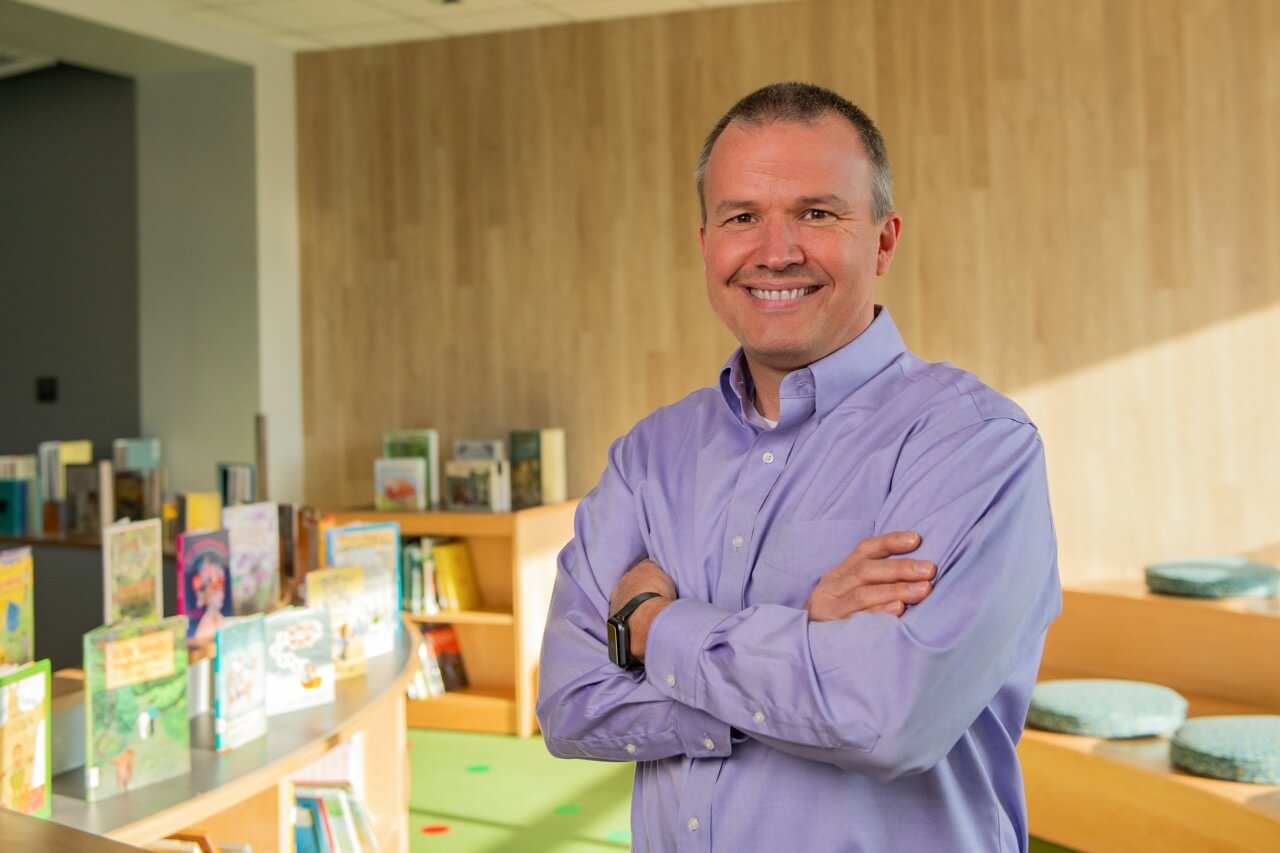There are 454 community schools in Maryland, located in every county with the highest concentration in Baltimore City.
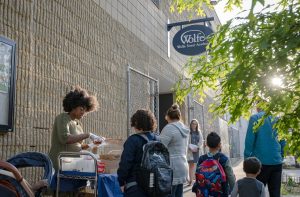 These community schools offer far more than a solid public school education. By their mission, these schools focus on the well-being of their community members and the high-need neighborhoods in which they are located. Research routinely shows the causal relationship between a school and its neighborhood. If a school is doing well, the neighborhood’s overall well-being improves.
These community schools offer far more than a solid public school education. By their mission, these schools focus on the well-being of their community members and the high-need neighborhoods in which they are located. Research routinely shows the causal relationship between a school and its neighborhood. If a school is doing well, the neighborhood’s overall well-being improves.
For a community school, there’s no fixed model. The services and support fit each neighborhood’s needs and are led collaboratively by administrators, teachers, staff, and community organizations who know the community and children best. These schools serve as community hubs and neighborhood anchors.
The one constant across all community schools is that much of its student/family population is low-income. The Maryland Child Alliance estimates that 15% of children in Maryland live in poverty, and 4% live in deep poverty. Today, the need for what a community school model can offer its students, families, and surrounding communities has never been more pressing.
The Coalition for Community Schools reported that some 60% of all schools in the U.S. were using a “community schools or wrap-around services model at the start of the school year – up from about 45 percent in 2023.” In January 2024, the Biden Administration announced another $74 million for community school efforts nationwide.
Nearly one-third of Maryland public schools will be converted to community schools in three years.
The Impact of the BCP Community School Model
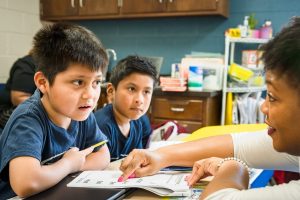 Since the Baltimore Curriculum Project (BCP) was founded in 1996, we’ve embraced the community school model. All six of our current network of neighborhood conversion charter schools – BCP is Maryland’s oldest and largest charter school operator – use the community school model.
Since the Baltimore Curriculum Project (BCP) was founded in 1996, we’ve embraced the community school model. All six of our current network of neighborhood conversion charter schools – BCP is Maryland’s oldest and largest charter school operator – use the community school model.
Community schools provide wraparound services from physical and mental health and academic and extracurricular supports such as food and uniforms that students and families need to thrive. Community partners and local government assist with these services, providing a collective power to address what historically underfunded and underserved neighborhoods need the most and students need to be successful.
Flexibility and data are a big part of the community school model. By tracking key indicators for student success and family well-being (attendance and academic performance, for example), BCP and its community partners can adjust strategies in real-time to meet changing needs and issues.
Each BCP school offers various services to its student and family populations but all address the medical and mental health needs of its community through healthcare services (including dental and vision) and mental health providers. Our schools have food pantries, back-to-school supply and uniform giveaways, holiday meals and gift programs, and other programs. At Pimlico Elementary / Middle School, there are laundry services onsite for students.
A community school coordinator, who is part of the school’s lead agency’s staff, serves full-time and onsite at each school to manage all services.
A Community School Case Study: Wolfe Street Academy and Elev8 Baltimore
Wolfe Street Academy (WSA) has been a BCP school and community school for nearly 18 years and is recognized nationally as an exemplary school. As Maryland’s Community School Strategy has expanded under the Blueprint for Maryland’s Future, the state’s education strategic plan, WSA has served as a resource.
 Mark Gaither, WSA Principal since it became a community school, knows the model is not about merely addressing issues within a community. “The community school strategy is one of the essential building blocks of a healthy school community,” he explains. “It is the daily exercise that keeps the school community thriving for years to come. As the world faces uncertain times, pandemics, recovery from pandemics, conflict and unrest, injustice, and inequity, the relationships that the community school strategy creates, nurtures, and is composed of are the pathway to solutions for our families, staff, and community.”
Mark Gaither, WSA Principal since it became a community school, knows the model is not about merely addressing issues within a community. “The community school strategy is one of the essential building blocks of a healthy school community,” he explains. “It is the daily exercise that keeps the school community thriving for years to come. As the world faces uncertain times, pandemics, recovery from pandemics, conflict and unrest, injustice, and inequity, the relationships that the community school strategy creates, nurtures, and is composed of are the pathway to solutions for our families, staff, and community.”
A few of the issues he and his staff, in partnership with WSA’s community partner Elev8 Baltimore, address are food scarcity or inadequate housing for WSA’s families, student attendance issues, or lack of supplies for staff. WSA also advocates politically for the school’s Upper Fells Point neighborhood and predominantly Hispanic families in the school community.
The connections that we build between each other as a community school allow us to identify the resources and strengths of our community and its partners to address the needs and weaknesses of that same community and those same partners. The world is not becoming an easier place to live in for most of the population. We need each other more now than ever. In the realm of schools and school communities, the community school strategy is the answer.
The 2023-24 school year was the first year Elev8 Baltimore collaborated with WSA. As part of the nonprofit’s full-service community schools strategy, Elev8 Baltimore provides out-of-school time opportunities and coordinates school-based health services, resources, support, and outreach for families in Baltimore.
Often, several community partners connect to a particular community school to address comprehensive needs. At WSA, Johns Hopkins Medicine has been providing onsite mental health services. Elev8 works with Hopkins to coordinate these services as part of a broader, wrap-around focus for families.
Dedicated Elev8 staff join the WSA staff to provide these services and other needed services. At WSA, these include:
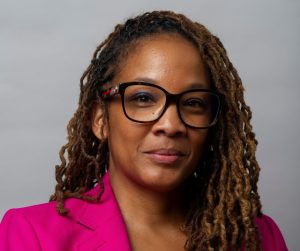 Leadership development
Leadership development- Tutoring/Experience Corps
- Case management
- Restorative practices training/support, as requested, as BCP is a regional and national leader in the Restorative Practices movement
- Resource development
“Elev8 believes that alignment with school leadership is critical to the success of the strategy,” remarks Alexandria Warrick-Adams, Elev8’s Executive Director, who along with Heidi Weiss-Beedie, the WSA Community School Coordinator, oversee the partnership with WSA.
Our partnership with Wolfe Street transcends leadership and is what is right for the residents in that part of the city. Our hope is to bring the weight of the organization to impact the lives of those that attend the school and/or live in the community that supports the school. Additionally, there is a vacuum of organizations that are willing to do the hard work of working in non-native English speakers and undocumented individuals.
[Ms. Warrick-Adams also participated on the celebrity panel for the BCP’s annual gala, Are You Smarter Than a BCP Student?]
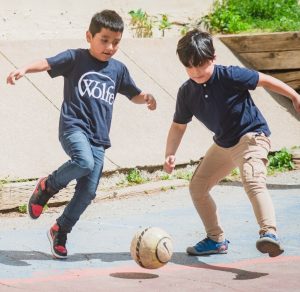 “The passion of Elev8 to serve others, to empower each other, and to creatively enrich our shared community, is also the passion of Wolfe Street Academy,” notes Mr. Gaither. One of the factors that drew WSA to Elev8 as a new partner was Ms. Warrick-Adams, a long time friend and partner with the school. “She brings a special dedication, conviction, and determination to getting the job done,” he adds. “Elev8 is bringing greater opportunities whether through attendance at school events or the development of a tutorial program for our students and families to succeed.
“The passion of Elev8 to serve others, to empower each other, and to creatively enrich our shared community, is also the passion of Wolfe Street Academy,” notes Mr. Gaither. One of the factors that drew WSA to Elev8 as a new partner was Ms. Warrick-Adams, a long time friend and partner with the school. “She brings a special dedication, conviction, and determination to getting the job done,” he adds. “Elev8 is bringing greater opportunities whether through attendance at school events or the development of a tutorial program for our students and families to succeed.
He also credits Ms. Weiss-Beedie’s energy in the WSA building and across the neighborhood. “She’s reached out into the community to discover the resources and strengths of our community and developed a bounty of connections within the community that she can call upon to serve the needs of our families, from food, furniture, physical and mental health, and basic human rights,” Mr. Gaither explains. “She’s stepped into the lives of our families, letting them know she is there to help solve ordinary or extraordinary problems and was central to celebrations of our communities’ diversity during our International Day.”
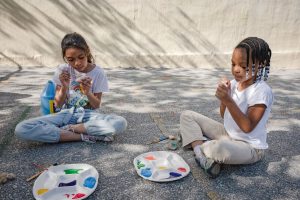 She serves as part of the WSA Leadership Team and is in daily discussion with school staff on how to address current and future news. This approach is at the core of how Elev8 works with schools. “We pay attention to the community and hold space for shared leadership with stakeholder groups (students/parents/community),” adds Ms. Warrick-Adams. “Be bold with your vision and identify priorities while using data to inform efforts.”
She serves as part of the WSA Leadership Team and is in daily discussion with school staff on how to address current and future news. This approach is at the core of how Elev8 works with schools. “We pay attention to the community and hold space for shared leadership with stakeholder groups (students/parents/community),” adds Ms. Warrick-Adams. “Be bold with your vision and identify priorities while using data to inform efforts.”
This fall, Elev8 adds another BCP school to its list of partner community schools: City Springs Elementary / Middle School. Elev8 will be managing similar programming for City Springs and is hoping to create and expand Elev8’s cradle to career framework in its place-based investment work, ensuring that young people have support as they navigate various transitions.
For more on the community school model, visit the National Education Association.
Enjoy this video of Wolfe Street, created several years ago to showcase the school’s impact as a community school.
